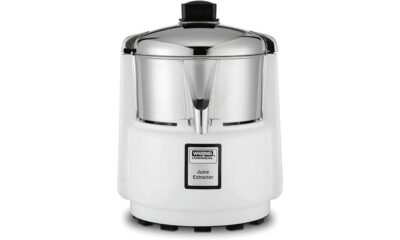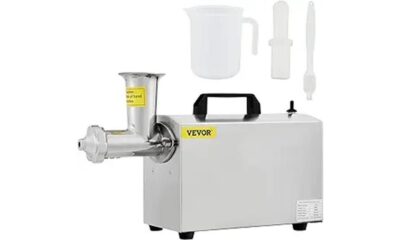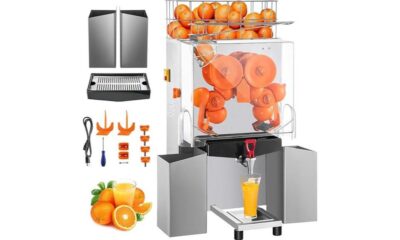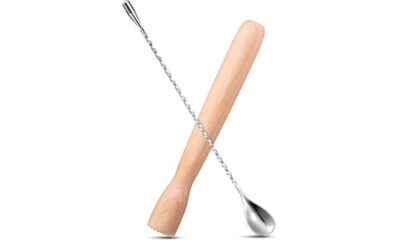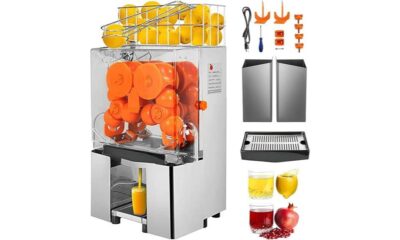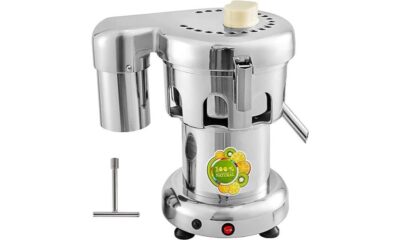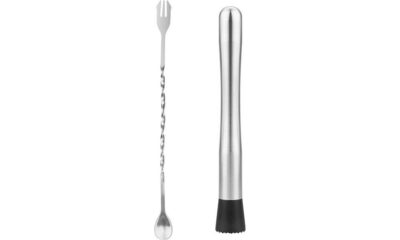Coffee Roasting
How Much Weight Is Lost In Coffee Roasting
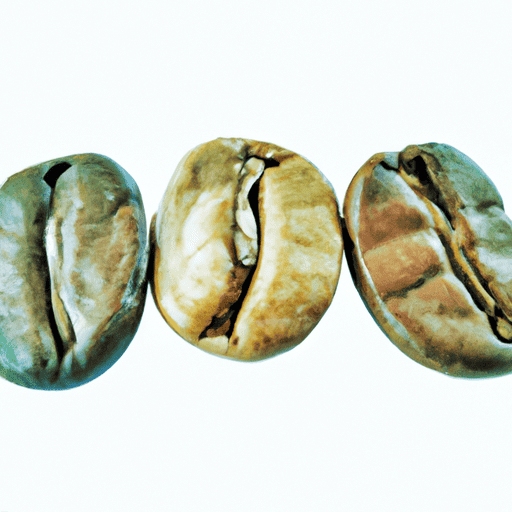
As a coffee enthusiast, I have always been fascinated by the coffee roasting process and the science behind it. One aspect of this process that often goes unnoticed is the weight loss that occurs during roasting. In fact, it is estimated that coffee beans can lose up to 20% of their weight during the roasting process.
This may not seem like a significant amount, but it has important implications for both coffee production and consumption. Understanding the weight loss factor in coffee roasting requires a basic understanding of the roasting process itself. During roasting, coffee beans are heated to temperatures ranging from 350 to 500 degrees Fahrenheit, causing a number of chemical reactions to occur.
These reactions result in the development of the coffee’s flavor, aroma, and color, as well as the loss of moisture and other volatile compounds. It is this loss of moisture and other compounds that contributes to the weight loss observed during roasting. In the following article, we will explore the effects of roasting on coffee beans, the implications of weight loss for coffee production and consumption, and the various factors that contribute to weight loss during roasting.
Key Takeaways
- Coffee beans can lose up to 20% of their weight during roasting.
- Weight loss during coffee roasting impacts the entire production process and can lead to a higher cost per pound of coffee for producers.
- Factors that affect weight loss during coffee roasting include moisture content, roast level, bean density, and roasting time.
- Roasting temperature and duration also affect weight loss, with higher temperatures and longer times resulting in more weight loss.
The Importance of Roasting in Coffee Making
You can’t make a great cup of coffee without understanding the importance of roasting. Roasting is the process that transforms the green coffee beans into the aromatic and flavorful beans that we use to brew coffee.
Roasting techniques play a crucial role in the development of the coffee flavor profile. The beans are carefully roasted at a specific temperature and time to bring out the desired flavor characteristics, such as acidity, sweetness, and bitterness.
Flavor development is a complex process that involves chemical reactions between the coffee beans’ natural compounds and the heat applied during roasting. As the beans roast, they undergo a series of physical and chemical changes that determine the coffee’s final taste.
Roasting also affects the coffee’s aroma, body, and acidity, making it an essential step in the coffee-making process. Understanding the coffee roasting process is the key to making a great cup of coffee.
Understanding the Coffee Roasting Process
As I watch the coffee beans darken and release their rich aroma, I’m reminded of the complex and fascinating process of transforming raw beans into a delicious cup of coffee. Understanding coffee chemistry is essential to mastering this process, and roasting temperature control plays a crucial role in achieving the perfect roast.
During the roasting process, coffee beans undergo a series of chemical reactions that transform their flavor and aroma. The temperature at which these reactions occur is critical to the final product. As the beans are heated, they undergo a series of color changes, from green to yellow, then to light brown, and eventually to a dark brown or black color.
Along with these color changes come changes in flavor and aroma, as the beans develop a complex mix of sweetness, acidity, and bitterness. By carefully controlling the roasting temperature, we can achieve the perfect balance of these flavors and create a delicious cup of coffee that is full of character and depth.
As we explore the effects of roasting on coffee beans, we’ll delve deeper into the chemical reactions that occur during this process and how they shape the final product.
The Effects of Roasting on Coffee Beans
When roasting coffee beans, there are several notable changes that occur.
First and foremost, the flavor and aroma of the coffee will change significantly. As the beans are roasted, they release different chemicals that contribute to the unique taste and scent of the final product.
Additionally, roasting can reduce the acidity and bitterness of the coffee, making it a smoother and more pleasant drinking experience.
Finally, roasting also leads to an increase in antioxidants, which can have numerous health benefits.
Changes in Flavor and Aroma
Roasting coffee causes significant changes in its flavor and aroma, with studies showing that up to 800 different chemical compounds are created during the process. These compounds are responsible for the unique sensory experience that coffee drinkers enjoy.
Here are some interesting facts about how roasting affects flavor and aroma:
- Roasting causes the beans to expand and crack, releasing moisture and creating a distinct aroma.
- The longer the roast, the darker and more bitter the coffee becomes.
- Different roasts produce different flavors, from the bright acidity of a light roast to the smoky richness of a dark roast.
- Specialty coffee roasters often experiment with different roasting techniques to create unique flavor profiles.
Flavor development and aroma retention are essential components of the coffee roasting process. But roasting also affects the acidity and bitterness of the final product. As I’ll explain in the next section, understanding how to control these factors is crucial to producing the perfect cup of coffee.
Reduction of Acidity and Bitterness
To achieve a smoother and less bitter taste in your cup of coffee, you should consider experimenting with different brewing methods and adjusting the grind size. However, one of the most effective ways to reduce bitterness and acidity is through the coffee roasting process. When coffee beans are roasted, the natural compounds that give coffee its bitter and acidic taste are broken down or reduced, resulting in a milder and more balanced flavor.
Acidity reduction in coffee roasting occurs due to the breakdown of chlorogenic acid, a compound that is present in unroasted coffee beans. As the beans are roasted, the chlorogenic acid is broken down into other compounds, resulting in a lower acidity level in the coffee. Bitterness reduction is also achieved through roasting, as the high temperature causes the breakdown of bitter compounds such as caffeine and trigonelline. This results in a smoother and less bitter taste in the cup of coffee.
To further enhance the health benefits of coffee, the subsequent section will discuss the increase in antioxidants that occurs during the roasting process.
Increase in Antioxidants
Did you know that your coffee can actually be good for you? That’s because during the roasting process, antioxidants are increased, providing you with even more health benefits in every sip.
Antioxidants are known for their ability to fight off harmful free radicals in the body, which can cause damage to cells and contribute to the development of chronic diseases. In fact, coffee is one of the richest sources of antioxidants in the Western diet, and the roasting process only enhances this benefit.
In addition to an increase in antioxidants, coffee roasting also leads to an increase in caffeine. While caffeine is often associated with negative health effects, such as jitteriness and insomnia, it can also have a positive impact on health. Studies have shown that moderate caffeine consumption can improve cognitive function, boost metabolism, and even reduce the risk of certain diseases.
So, next time you reach for a cup of coffee, remember that it’s not just a tasty beverage – it’s also packed with health benefits that can help you feel and perform your best.
Now, let’s move on to the weight loss factor in coffee roasting.
The Weight Loss Factor
In this section, I’ll be discussing the weight loss factor in coffee roasting. It’s important for coffee enthusiasts to understand how much weight is lost during the roasting process and the various factors that influence this loss. By understanding these key points, we can better appreciate the complexity and nuances of coffee roasting and how it affects the final product.
During the roasting process, coffee beans lose weight due to moisture evaporation and the breakdown of carbohydrates and other organic compounds. This weight loss can vary depending on factors such as the roast level, bean origin, and processing method. For example, darker roasts typically result in more weight loss than lighter roasts, and wet-processed beans tend to lose more weight than dry-processed beans.
By monitoring weight loss during roasting, coffee roasters can adjust their techniques to achieve desired flavor profiles and consistency. Additionally, understanding weight loss can help coffee consumers make informed decisions when purchasing coffee by providing insight into the quality and processing of the beans.
How Much Weight is Lost in Coffee Roasting
You might be surprised to learn that coffee beans can lose up to 20% of their weight during the roasting process. This weight loss is due to several factors, including moisture evaporation, caramelization, and the breakdown of organic compounds. The amount of weight lost can vary depending on the type of coffee bean, the roasting temperature, and the duration of the roasting process.
Calculating weight loss during coffee roasting involves measuring the weight of the beans before and after roasting. The weight loss is then calculated as a percentage of the original weight. Roasting temperature also plays a role in weight loss, with higher temperatures resulting in more weight loss due to increased evaporation and breakdown of organic compounds.
Understanding how much weight is lost during coffee roasting is an important factor in determining the amount of coffee beans needed for a certain yield. Factors that affect weight loss during coffee roasting include moisture content, roast level, bean density, and roasting time. By understanding these factors, coffee roasters can fine-tune their roasting process to achieve the desired flavor and aroma profiles.
In the next section, we will delve deeper into these factors and explore how they impact the weight loss and overall quality of roasted coffee beans.
Factors that Affect Weight Loss
In the previous subtopic, we’ve discussed the amount of weight lost during coffee roasting. Now, let’s delve into the factors that affect coffee weight loss.
These factors can include the initial moisture content of the beans, the roasting temperature, and the duration of the roasting process. One major factor that affects weight loss is the initial moisture content of the beans. Beans with higher moisture content will lose more weight during the roasting process compared to beans with lower moisture content.
The roasting temperature and duration also play a crucial role in coffee weight loss. Higher roasting temperatures and longer roasting times will result in more weight loss. However, these factors can also have a significant impact on the coffee’s quality, such as its flavor, aroma, and acidity. Therefore, it’s important to carefully monitor and control these factors to produce high-quality coffee.
Understanding the factors affecting coffee weight loss is essential in coffee production. By controlling these factors, coffee roasters can produce consistent and quality coffee.
In the next section, we’ll explore the implications of coffee weight loss on coffee production and how it affects the overall quality of the final product.
Implications for Coffee Production
The significant weight loss during coffee roasting impacts the entire production process, leading to a rich and flavorful cup that coffee lovers crave.
Roasting temperature and bean density are key factors in coffee production that affect weight loss. As the coffee beans undergo roasting, they lose moisture, which accounts for a large portion of the weight loss. In general, the higher the roasting temperature, the more weight loss occurs. Similarly, denser beans tend to lose less weight than less dense beans.
Aside from affecting the final flavor profile of the coffee, weight loss also has implications for the economics of coffee production. As the beans lose weight, the amount of coffee produced from a given batch decreases. This can result in a higher cost per pound of coffee, which can impact the bottom line for coffee producers. However, the resulting flavor and quality of the coffee can also command a higher price in the market, making it a worthwhile investment for producers.
Understanding the implications of weight loss during coffee roasting is key to producing high-quality coffee that satisfies the demands of consumers.
Implications for Coffee Consumption
Savoring a freshly brewed cup of coffee is like a warm embrace on a chilly day, enveloping you in a comforting blanket of rich, complex flavors. However, beyond its taste and aroma, coffee also has effects on our consumption habits.
Recent studies have shown that coffee consumption can have a positive impact on weight loss efforts. One study found that drinking coffee can increase metabolic rate, leading to greater calorie burn throughout the day. Additionally, coffee has been shown to decrease appetite and increase feelings of fullness, potentially leading to a reduction in overall calorie intake. However, it’s important to note that these effects may vary depending on the individual and their specific coffee consumption habits.
Moving forward, understanding the effects of coffee consumption on weight loss measurement can have significant implications for our health and wellness. As we explore different roasting profiles and variations, it’s important to consider how our coffee choices can impact our overall diet and lifestyle.
Roasting Profiles and Variations
Exploring different roasting profiles and variations can reveal the unique flavor profiles and aromas of each coffee bean. The roasting temperature plays a crucial role in determining the flavor development of coffee beans. Generally, the higher the temperature, the more the coffee beans lose their acidity and gain a robust body. However, it’s important to note that different coffee beans have different optimal roasting temperatures.
For instance, some beans require a lower temperature to preserve their delicate flavors while others require a higher temperature to bring out their full potential. Roasting variations also play a significant role in determining the final flavor profile of coffee. For instance, light roasts tend to have a brighter, more acidic taste while dark roasts have a more robust and bitter taste. However, there are variations in between, such as medium roasts, that offer a balance between the two extremes.
By experimenting with different roasting profiles and variations, coffee roasters can discover unique flavor notes and aromas that make each coffee bean distinct. Understanding these variations is crucial for coffee enthusiasts who want to explore the vast world of coffee.
Transitioning to the subsequent section about sustainability and ethics in coffee roasting, it’s important to consider the impact of coffee roasting practices on the environment and the people involved in the coffee supply chain.
Sustainability and Ethics in Coffee Roasting
As a coffee roaster, it’s important for me to consider the environmental impact of my roasting practices. This includes reducing energy consumption and waste, as well as sourcing green coffee beans that are grown sustainably.
Additionally, I believe in fair trade and direct trade practices, which ensure that farmers receive fair compensation for their work and are able to invest in their communities.
By prioritizing sustainability and ethical sourcing in my roasting process, I can contribute to a more just and sustainable coffee industry.
Environmental Impact of Roasting
You may be concerned about the environmental impact of roasting coffee, but you’ll be pleased to know that there are sustainable and eco-friendly methods available.
One of the biggest contributors to the carbon footprint of coffee roasting is the energy required to roast the beans. However, there are now roasting machines available that use renewable energy sources, such as solar power or biomass, to minimize this impact.
Additionally, some roasters have implemented waste management strategies to reduce the amount of waste produced during the roasting process. For example, some roasters compost the chaff and other organic waste produced during the roasting process, while others use it as a fuel source for their roasting machines.
Furthermore, some roasters have implemented practices that go beyond just reducing their environmental impact. Fair trade and direct trade practices are two examples of ethical sourcing practices that some roasters use to ensure that their coffee is produced in a sustainable and socially responsible manner.
These practices prioritize the well-being of the farmers and workers who produce the coffee, as well as the long-term sustainability of the coffee-growing regions. By supporting roasters who prioritize these practices, you can enjoy your coffee knowing that it was produced in a way that is both environmentally and socially responsible.
Fair Trade and Direct Trade Practices
If you want to make a positive impact with your coffee consumption, consider supporting roasters who prioritize fair trade and direct trade practices.
Fair trade refers to a certification process that ensures farmers are paid a fair price for their coffee beans. This certification also includes environmental and social standards.
Direct trade, on the other hand, involves building long-term relationships with coffee farmers and paying them a premium for their high-quality beans. Ethical sourcing practices are essential for ensuring that coffee farmers are paid fairly and can sustain their livelihoods over time.
When you support coffee roasters who prioritize fair trade and direct trade practices, you are choosing to make a difference in the lives of those who produce your favorite beverage. These practices can help to reduce poverty and improve the quality of life for coffee farmers and their families. Additionally, they can help to promote sustainable farming practices and protect the environment.
By choosing to support ethical sourcing practices, you are contributing to a more just and sustainable coffee industry.
In the next section, we will explore the benefits and challenges of home roasting and DIY coffee roasters.
Home Roasting and DIY Coffee Roasters
As a coffee enthusiast, I’ve found that home roasting offers many benefits. Not only can I customize the roast level to my liking, but I can also ensure that the beans are ethically sourced.
To get started, there are a variety of tools and techniques available for home roasting, from simple popcorn poppers to more advanced DIY roasters. By taking control of the roasting process, home roasters can enjoy a unique and satisfying coffee experience.
Benefits of Home Roasting
Discovering the benefits of home roasting can be an exciting journey, as it allows me to enjoy the full flavor of coffee while potentially losing weight. Here are some of the advantages of home roasting and the equipment needed to start this journey:
-
Freshness: Home roasting allows me to enjoy freshly roasted coffee, which is rich in flavor and aroma.
-
Cost-effectiveness: By roasting my own coffee, I can save a lot of money in the long run.
-
Control: I have complete control over the roasting process, allowing me to customize the roast to my liking.
-
Health benefits: Roasting coffee removes some of the beans’ water content, resulting in a lower weight and calorie count.
To get started with home roasting, I need a coffee roaster, a kitchen scale, and green coffee beans. The roaster can be an electric machine or a manual stovetop device, depending on my preference and budget.
With these tools and techniques, I can roast coffee at home and enjoy the full flavor and health benefits of freshly roasted coffee.
Tools and Techniques for Home Roasting
To start home roasting, you’ll need some specific tools and techniques such as a coffee roaster. The roaster is the most important piece of equipment, as it is responsible for heating the beans evenly and achieving the desired roast levels and flavors. There are various types of roasters available, ranging from basic popcorn poppers to more advanced drum roasters. It’s important to choose a roaster that can handle the amount of beans you want to roast and that can produce the desired roast level.
Additionally, you’ll need a few other tools to ensure a successful roast. A scale is necessary for measuring the coffee beans accurately, while a timer is needed to keep track of the roast time. A thermometer can also be handy to monitor the temperature during the roasting process.
As you become more experienced with home roasting, you may also want to experiment with different techniques such as air roasting, which uses hot air to roast the beans, or using a cast iron pan on the stove.
By having the right tools and techniques, you can achieve a perfectly roasted coffee bean with the desired flavor and aroma.
Frequently Asked Questions
How does the elevation of coffee farms affect the weight loss in roasting?
I have observed that coffee farms at higher elevations generally produce beans with lower moisture content. As a result, the weight loss during roasting may be slightly less compared to beans from lower elevations with higher moisture content.
Can the type of roasting equipment used affect the weight loss in coffee roasting?
Roasting equipment can affect weight loss in coffee roasting. The weight loss correlation can vary based on the type of equipment used and the roasting temperature. Understanding these relationships is crucial for achieving consistent results.
What impact does the origin of the coffee beans have on their weight loss during roasting?
Origin factors and bean density play a crucial role in determining the weight loss of coffee beans during roasting. The origin of the beans affects their moisture content and density, which in turn affects the amount of weight lost during the process.
Is there a specific roasting time that results in the greatest weight loss for coffee beans?
Optimal roasting time varies depending on desired flavor profile, but generally occurs between 10-20 minutes. Temperature also influences weight loss, with higher temperatures resulting in greater loss.
How does the level of moisture in coffee beans affect their weight loss during roasting?
As a coffee roaster, I’ve observed that moisture level impacts weight loss during roasting. Higher moisture content results in greater weight loss. Correlation between moisture level and roasting weight loss is essential to achieving consistent roast profiles.
Conclusion
In conclusion, coffee roasting is a crucial step in the coffee making process. It not only develops the coffee’s flavor and aroma but also affects its weight. The weight loss factor, which can range from 10-20%, is a result of moisture and carbon dioxide escaping from the beans during roasting.
This loss may seem insignificant, but it can have significant implications for coffee production and consumption. Imagine the coffee bean as a cocoon, and the roasting process as its metamorphosis into a beautiful butterfly. The weight loss is the cocoon shedding its old skin, leaving behind a transformed and refined product.
As coffee consumers, we should appreciate the skill and effort that goes into roasting quality coffee beans, and support sustainable and ethical practices in the industry. Whether it’s enjoying a cup at a cafe or experimenting with home roasting, let’s savor the unique and complex flavors that coffee roasting has to offer.
Justin is a seasoned author, coffee and tea enthusiast, and an essential member of the Cappuccino Oracle team. With a keen appreciation for the complexities of coffee, coffee alternatives, and tea, Justin has dedicated his professional career to exploring these realms and sharing his insights with readers worldwide.
Justin’s immersion in the world of coffee, coffee alternatives, and tea began at a young age, kindling a passion that extended beyond mere consumption. This love for these beverages led him to combine his talent for writing with his devotion to coffee and tea, bringing him to Cappuccino Oracle as a dedicated author.
Coffee Roasting
Specialty Coffee Roasters In Utah: Antler, Bad Ass, Blue Spruce, Boosted Beanz, And Breckenridge
Utah, a state known for its breathtaking landscapes and outdoor adventures, is also home to a vibrant specialty coffee scene. Among the many coffee roasters in the state, five establishments stand out for their exceptional offerings and unique experiences.
Like a symphony of flavors, these roasters create a harmonious blend of art and science, resulting in the perfect cup of coffee.
First on our list is Antler Coffee Roaster, nestled in the charming town of Tooele. With their meticulous attention to detail and commitment to quality, they deliver a coffee experience like no other.
Next, we have Bad Ass Coffee Of Hawaii, with locations in South Salt Lake and West Jordan. Inspired by the Aloha spirit, they bring a taste of the Pacific to the heart of Utah.
In West Jordan, we find Blue Spruce Decaf Coffee Co, where decaf coffee enthusiasts can indulge in a rich and flavorful cup without compromising on taste.
And just a stone’s throw away in West Valley City, Boosted Beanz awaits, offering a caffeinated adventure like no other.
Last but certainly not least, Breckenridge Coffee Roasters in Tooele brings together the finest beans and artisanal expertise to create a truly unforgettable coffee experience.
Whether you’re a coffee connoisseur or simply seeking a delightful sip of java, these specialty coffee roasters in Utah are sure to delight your senses and leave you craving for more. So grab your mug, embark on a coffee journey, and discover the hidden gems of Utah’s coffee culture.
Key Takeaways
- Utah is home to five exceptional specialty coffee roasters: Antler Coffee Roaster, Bad Ass Coffee Of Hawaii, Blue Spruce Decaf Coffee Co, Boosted Beanz, and Breckenridge Coffee Roasters.
- Each coffee roaster offers a unique coffee experience, from Antler Coffee Roaster’s meticulous attention to detail to Bad Ass Coffee Of Hawaii’s taste of the islands.
- Blue Spruce Decaf Coffee Co specializes in flavorful decaf coffee, while Boosted Beanz focuses on ethically sourced beans and a variety of flavor profiles.
- Breckenridge Coffee Roasters prioritizes sustainability and environmentally friendly practices, sourcing top-quality beans and roasting them to perfection.
Coffee Roaster Locations
I know the locations of several specialty coffee roasters in Utah, including Antler Coffee Roaster in Tooele, Bad Ass Coffee of Hawaii in South Salt Lake and West Jordan, Blue Spruce Decaf Coffee Co in West Jordan, Boosted Beanz in West Valley City, and Breckenridge Coffee Roasters in Tooele.
Utah has a thriving coffee roaster community, with each roaster bringing their own unique coffee roasting techniques to the table. Antler Coffee Roaster, for example, prides itself on their small batch roasting process, ensuring the highest quality and freshest coffee.
Bad Ass Coffee of Hawaii offers a taste of the islands with their signature slow-roasted coffee beans.
Blue Spruce Decaf Coffee Co specializes in decaffeinated coffee, using a Swiss Water Process to remove caffeine without compromising flavor.
Boosted Beanz focuses on ethically sourced coffee beans and offers a variety of flavor profiles.
Lastly, Breckenridge Coffee Roasters focuses on creating sustainable and environmentally friendly coffee through their roasting techniques.
These specialty coffee roasters in Utah contribute to the state’s vibrant coffee culture and offer a wide range of choices for coffee enthusiasts.
Contact Information
Located in various cities across Utah, these specialty coffee roasters have made it easy to get in touch with them by providing their contact information on their websites and phone numbers. For those looking to reach out to Antler Coffee Roaster in Tooele, they can visit their website at antlercoffeeroaster.com or call them at 661-304-8005.
Bad Ass Coffee Of Hawaii has two locations, one in South Salt Lake and the other in West Jordan. Their website, badasscoffee.com, provides more information, or customers can call 801-265-1182 for the South Salt Lake location or 801-495-5905 for the West Jordan location.
Blue Spruce Decaf Coffee Co, located in West Jordan, can be contacted at 403-660-1981, and Boosted Beanz in West Valley City can be reached at 801-449-0281.
Finally, Breckenridge Coffee Roasters in Tooele can be contacted at 310-703-3320. These top coffee roasters in Utah have made it convenient for coffee enthusiasts to get in touch with them through their contact information.
Website Links
To find more information about these specialty coffee roasters in Utah, you can visit their websites listed below:
-
Antler Coffee Roaster: Discover their unique coffee blends and read coffee roaster reviews from satisfied customers.
-
Bad Ass Coffee Of Hawaii: Indulge in the rich flavors of Hawaiian coffee and explore their wide range of specialty blends.
-
Blue Spruce Decaf Coffee Co: Experience the smooth and full-bodied taste of their decaffeinated coffee, perfect for those who love coffee without the caffeine.
-
Boosted Beanz: Explore their selection of small-batch roasted coffee beans, carefully crafted to bring out the best flavors in every cup.
-
Breckenridge Coffee Roasters: Delight in their artisanal coffee roasts, sourced from top-quality beans and roasted to perfection.
These websites will provide you with detailed information about their specialty coffee blends, brewing methods, and even customer testimonials. Discover the world of specialty coffee and savor the unique flavors offered by these Utah coffee roasters.
Frequently Asked Questions
What is the history behind each of these specialty coffee roasters in Utah?
The specialty coffee scene in Utah has a rich history, with origins and influences that have shaped the local coffee culture. Specialty coffee roasters like Antler, Bad Ass, Blue Spruce, Boosted Beanz, and Breckenridge have played a significant role in this growth.
Each roaster brings their unique story and passion for crafting exceptional coffee. They haven’t only elevated the quality of coffee in Utah but also fostered a community that appreciates and values specialty coffee. Their dedication has had a lasting impact on the local coffee culture.
How do these coffee roasters source their beans and ensure quality?
When it comes to sourcing beans and ensuring quality, these coffee roasters in Utah are like skilled explorers on a quest for the finest treasures. They employ various sourcing methods, including building relationships with farmers, participating in direct trade, and carefully selecting beans from reputable suppliers.
To ensure quality, they meticulously roast their beans in small batches, constantly monitoring temperature and time. Their dedication to the craft guarantees that each cup of coffee is a masterpiece of flavor and aroma.
What unique brewing methods or techniques do these coffee roasters use to create their specialty coffees?
Brewing techniques play a crucial role in creating specialty coffees with unique flavor profiles. Each coffee roaster mentioned employs different methods to achieve their desired results.
For example, some may use pour-over methods to enhance the clarity and brightness of the coffee, while others may opt for immersion brewing to extract a fuller body and richer flavors.
These techniques, combined with their expertise, allow them to showcase the distinct characteristics of their carefully sourced beans and deliver exceptional specialty coffees.
Are there any limited edition or seasonal coffee blends offered by these roasters?
Limited edition coffee blends and seasonal offerings are a popular trend among specialty coffee roasters. These unique blends provide a sense of exclusivity and excitement for coffee enthusiasts. Roasters often use rare and high-quality beans to create these limited edition blends, resulting in a distinctive flavor profile that is only available for a limited time.
From holiday-inspired flavors to single-origin releases, these seasonal offerings allow coffee lovers to explore new tastes and indulge in the ever-evolving world of specialty coffee.
Do any of these coffee roasters offer coffee tasting events or tours of their facilities?
Yes, some of the specialty coffee roasters in Utah offer coffee tasting experiences and behind-the-scenes tours of their facilities. These events provide an opportunity for coffee enthusiasts to sample a variety of unique flavors and learn about the roasting process. Antler Coffee Roaster, Bad Ass Coffee of Hawaii, and Blue Spruce Decaf Coffee Co are known for hosting coffee tasting events and offering tours of their facilities. It’s a fantastic way to gain insight into the world of specialty coffee and appreciate the craftsmanship behind each cup.
Arf, an author and an innovative enthusiast of coffee, coffee alternatives, and tea, plays a crucial role as a contributor to the esteemed Cappuccino Oracle platform. Renowned for his curiosity and passion for these captivating beverages, Arf has carved out a unique space for himself in the world of exploration and writing. He realized that coffee, coffee alternatives, and tea are not mere drinks to keep one awake, but universes of flavors and stories waiting to be explored.
Arf’s articles for Cappuccino Oracle blend meticulous research with personal experiences, providing readers with an in-depth understanding of various types of coffee, coffee alternatives, and tea, along with their unique characteristics, cultures, and histories. His honest reviews and engaging narratives guide readers on their own journeys, helping them discover their preferences and find their perfect brew.
Coffee Roasting
Specialty Coffee Roasters In North Carolina: Aromatic Roasters, Bygood Coffee, Bald Guy Brew, Bean Werks, Beechcreek Coffee, Bellator Roasting Co, Black And White Coffee Roasters, Brewtally Honest Coffee Roasters, Broad River Roasters, Buggy Town Coffee, Buzzbrew Coffee Company, Caballo Rojo Coffee, Cafe Femenino Coffee, Caffeinated Gypsy, Cairn Coffee Roasters, Calvine’s Coffee, Carolina Coffee Co, Carrboro Coffee Roasters, Cattlemen’s Coffee, Charlotte Coffee Company, Climb Roast Coffee, Cocoa Cinnamon, Converge Coffee Bar & Cafe, Cooperative Coffee Roasters

Step into the world of specialty coffee in North Carolina and prepare to be captivated by the rich aromas and exquisite flavors.
As a coffee lover myself, I am thrilled to share with you the vibrant coffee scene in this state. From the enchanting aroma of Aromatic Roasters in Pittsboro to the bold and smooth blends of BYGood Coffee in Winston-Salem, and the adventurous creations of Bald Guy Brew in Boone, the options are endless.
Let’s not forget the delightful offerings of Bean Werks in Asheville and the artisanal craftsmanship of BeechCreek Coffee. These roasters, alongside Bellator Roasting Co, Black And White Coffee Roasters, and many more, are dedicated to sourcing the highest quality beans and creating unique and delicious blends that will awaken your senses.
Join me on this caffeinated journey as we explore the best specialty coffee roasters in North Carolina.
Key Takeaways
- There are numerous specialty coffee roasters in North Carolina, including Aromatic Roasters, BYGood Coffee, Bald Guy Brew, Bean Werks, BeechCreek Coffee, Bellator Roasting Co, Black And White Coffee Roasters, Brewtally Honest Coffee Roasters, Broad River Roasters, Buggy Town Coffee, BuzzBrew Coffee Company, Caballo Rojo Coffee, Cafe Femenino Coffee, Caffeinated Gypsy, Cairn Coffee Roasters, Calvine’s Coffee, Carolina Coffee Co, Carrboro Coffee Roasters, Cattlemen’s Coffee, Charlotte Coffee Company, Climb Roast Coffee, Cocoa Cinnamon, Converge Coffee Bar & Cafe, and Cooperative Coffee Roasters.
- Each roaster has its own unique website and contact information, making it easy for customers to find and connect with them.
- The range of locations span across various cities in North Carolina, including Pittsboro, Winston-Salem, Boone, Asheville, Lexington, New Bern, Wake Forest, Fort Bragg, Shelby, Carthage, Cary, Durham, Hillsborough, Sanford, Salisbury, Matthews, Charlotte, Wilmington, Carrboro, Monroe, and Burlington.
- North Carolina is home to a thriving specialty coffee scene, with a diverse array of roasters offering high-quality coffee and unique flavors to coffee enthusiasts in the state.
What is it?
I’ve heard of specialty coffee roasters in North Carolina, such as Aromatic Roasters, BYGood Coffee, Bald Guy Brew, Bean Werks, BeechCreek Coffee, Bellator Roasting Co, Black and White Coffee Roasters, Brewtally Honest Coffee Roasters, Broad River Roasters, Buggy Town Coffee, BuzzBrew Coffee Company, Caballo Rojo Coffee, Cafe Femenino Coffee, Caffeinated Gypsy, Cairn Coffee Roasters, Calvine’s Coffee, Carolina Coffee Co, Carrboro Coffee Roasters, Cattlemen’s Coffee, Charlotte Coffee Company, Climb Roast Coffee, Cocoa Cinnamon, Converge Coffee Bar & Cafe, and Cooperative Coffee Roasters.
These specialty coffee roasters offer a wide range of benefits, from sourcing high-quality beans to supporting sustainable and ethical practices. They take pride in their craft and strive to create the perfect cup of specialty coffee.
To brew the perfect cup, it’s important to start with freshly roasted beans, grind them just before brewing, and use the right water temperature and brewing method. Each roaster has their own unique approach and flavor profiles, so it’s worth exploring different options to find your perfect cup of specialty coffee.
Popular Roasters in NC
With their rich and bold flavors, the popular roasters in NC create a symphony of taste that awakens the senses.
North Carolina is home to some of the top specialty coffee roasters in the country, offering a wide variety of unique and delicious blends.
Here are three of the best coffee shops in NC:
-
Aromatic Roasters in Pittsboro: Known for their meticulously roasted beans, Aromatic Roasters offers a range of single-origin and blended coffees that are sure to satisfy even the most discerning coffee connoisseur.
-
Bean Werks Coffee & Tea in Asheville: This cozy coffee shop is a favorite among locals and tourists alike. Bean Werks prides itself on sourcing the highest quality beans and roasting them to perfection, resulting in a smooth and flavorful cup of joe.
-
Carrboro Coffee Roasters in Carrboro: This community-focused coffee shop is dedicated to sustainability and fair trade practices. Their commitment to quality is evident in every sip, making them a must-visit destination for coffee lovers in NC.
Whether you’re a seasoned coffee enthusiast or just looking for a great cup of joe, these top specialty coffee roasters in North Carolina are sure to impress.
Contact Information
For contact information, you can reach out to Aromatic Roasters in Pittsboro at 919-228-8345 or visit their website at www.aromaticroasters.com. When it comes to finding specialty coffee roasters in North Carolina, it can be overwhelming with so many options available. However, there are a few factors to consider when choosing the best one. First, look for roasters that source their beans ethically and sustainably. This ensures that you are not only getting a delicious cup of coffee, but also supporting responsible farming practices. Second, consider the roast level that suits your taste preferences. Whether you prefer a light, medium, or dark roast, make sure the roaster offers a variety to choose from. Lastly, during the pandemic, it’s important to support local businesses. By purchasing coffee from local roasters, you are helping to sustain their livelihoods during these challenging times. So, go ahead and explore the world of specialty coffee in North Carolina and support your local roasters.
Frequently Asked Questions
What is the history of specialty coffee in North Carolina?
Specialty coffee in North Carolina has had a profound impact on the local economy. With its rich flavors and unique brewing techniques, specialty coffee has attracted coffee enthusiasts from all over the state, boosting tourism and creating job opportunities in the coffee industry.
Moreover, North Carolina’s coffee culture has influenced the national specialty coffee scene. Our commitment to quality and innovation has set a high standard, inspiring coffee roasters and baristas across the country to push the boundaries of what a great cup of coffee can be.
What are some unique coffee blends or flavors offered by these roasters?
Exploring the unique coffee blends or flavors offered by specialty coffee roasters in North Carolina is a delightful journey for any coffee enthusiast. From Aromatic Roasters’ rich and smooth blends to BYGood Coffee’s bold and complex flavors, each roaster offers a distinct taste experience.
Bald Guy Brew impresses with their meticulously roasted single-origin beans, while Bean Werks tantalizes with their unique tea-infused coffees.
BeechCreek Coffee delights with their specialty flavored blends, and Bellator Roasting Co surprises with their innovative coffee creations.
With so many options, North Carolina is truly a coffee lover’s paradise.
Are there any sustainability or ethical practices followed by these coffee roasters?
Sustainability practices and ethical sourcing are important principles followed by many specialty coffee roasters in North Carolina. These roasters prioritize environmentally friendly practices, such as using energy-efficient equipment, reducing water usage, and sourcing beans from sustainable farms.
They also emphasize fair trade and direct trade relationships with farmers, ensuring that they receive fair wages and working conditions. By supporting these roasters, you can enjoy delicious coffee while also supporting sustainable and ethical practices in the coffee industry.
Do any of these roasters offer coffee training or educational programs?
Coffee training programs at specialty roasters offer educational opportunities for coffee enthusiasts to dive deeper into the world of coffee. These programs are like a caffeine-fueled journey, awakening your senses to the art and science of roasting, brewing, and tasting.
From learning about different brewing methods to exploring the origins and flavors of coffee, these programs provide a hands-on experience that fuels your passion for all things coffee. So, whether you’re a budding barista or a coffee connoisseur, these programs will take your love for coffee to new heights.
Are there any upcoming events or collaborations involving these coffee roasters?
Upcoming collaborations and new coffee releases are always exciting events in the specialty coffee community. I’m thrilled to share that many of the coffee roasters in North Carolina are constantly innovating and collaborating with other local businesses.
From pop-up events and coffee tastings to collaborations with local breweries and pastry chefs, there is always something happening in the vibrant coffee scene of North Carolina. Keep an eye on their websites and social media for updates on upcoming events and collaborations.
Arf, an author and an innovative enthusiast of coffee, coffee alternatives, and tea, plays a crucial role as a contributor to the esteemed Cappuccino Oracle platform. Renowned for his curiosity and passion for these captivating beverages, Arf has carved out a unique space for himself in the world of exploration and writing. He realized that coffee, coffee alternatives, and tea are not mere drinks to keep one awake, but universes of flavors and stories waiting to be explored.
Arf’s articles for Cappuccino Oracle blend meticulous research with personal experiences, providing readers with an in-depth understanding of various types of coffee, coffee alternatives, and tea, along with their unique characteristics, cultures, and histories. His honest reviews and engaging narratives guide readers on their own journeys, helping them discover their preferences and find their perfect brew.
Coffee Roasting
Specialty Coffee Roasters In New Mexico: A Guide

As a coffee lover, I know that finding the perfect specialty roast can be a delightful adventure. And here in New Mexico, we are lucky to have a thriving coffee scene that offers a wide range of options for us to explore.
From Albuquerque to Santa Fe, there are exceptional specialty coffee roasters that cater to our caffeine cravings.
Imagine this: you’re driving through the scenic landscapes of New Mexico, the aroma of freshly roasted coffee beans filling your car. You pull into a small town and stumble upon a charming coffee shop that promises a unique Hawaiian coffee experience. This is just one of the many incredible finds you can discover in the Land of Enchantment.
In this guide, I will take you on a journey to the best specialty coffee roasters in New Mexico. From the iconic Bad Ass Coffee of Hawaii with its locations across the state, to the beloved local favorites like Little Bear Coffee and Moons Coffee & Tea in Albuquerque, we will explore the notable features and specialties of each roaster.
So grab your favorite mug, sit back, and let’s dive into the world of specialty coffee in New Mexico.
Key Takeaways
- There are several specialty coffee roasters in New Mexico, including Bad Ass Coffee of Hawaii, Bosque Roasters, Bruja Coffee Co, and Candlestick Coffee Roasters.
- Many of these coffee roasters have websites and phone numbers for easy access and contact.
- Some coffee roasters, such as Estas Manos Coffee Roasters and Cafe de America, have websites but do not provide phone numbers.
- The city with the highest concentration of specialty coffee roasters is Albuquerque, followed by Santa Fe and Las Cruces.
Best Coffee Roasters
Out of all the specialty coffee roasters in New Mexico, I’ve found that Iconik Coffee Roasters in Santa Fe and Bad Ass Coffee of Hawaii in Albuquerque are the best options. Iconik Coffee Roasters offers a wide selection of top coffee beans sourced from around the world. Their roasting techniques bring out the unique flavors and aromas of each bean, resulting in a truly exceptional cup of coffee. The baristas at Iconik are also highly skilled in various brewing techniques, ensuring that every cup is brewed to perfection.
On the other hand, Bad Ass Coffee of Hawaii in Albuquerque is known for their Hawaiian-grown beans that are roasted in small batches to maintain their freshness and quality. Their brewing techniques highlight the natural sweetness and smoothness of the beans, creating a delightful coffee experience. Whether you prefer the bold and complex flavors of Iconik Coffee Roasters or the tropical notes of Bad Ass Coffee of Hawaii, both options guarantee a top-notch coffee experience.
Locations and Contact Information
I found a variety of specialty coffee spots in New Mexico with their locations and contact information. Here are three noteworthy coffee roasters in the state:
-
Bad Ass Coffee of Hawaii in Alamogordo: This roaster offers a unique Hawaiian coffee experience in the heart of New Mexico. You can find them at their website or reach them at their phone number.
-
Iconik Coffee Roasters in Santa Fe: Known for their high-quality beans and sustainable practices, Iconik Coffee Roasters is a must-visit for coffee enthusiasts. You can learn more about them at their website or give them a call.
-
Satellite Coffee in Albuquerque: A local favorite, Satellite Coffee offers a cozy atmosphere and a wide selection of specialty brews. For more information, visit their website or contact them via phone.
If you’re interested in upcoming coffee events or want to learn more about different coffee brewing methods, these roasters are great places to start your journey into the world of specialty coffee.
Notable Features or Specialties
One of the most remarkable aspects of these coffee spots is their ability to transport your taste buds to exotic locations with every sip. Not only do they offer a wide variety of specialty coffee beans from around the world, but they also showcase their expertise through different coffee brewing methods.
Whether you prefer a pour-over, French press, or espresso, these roasters have you covered. Additionally, many of these coffee spots pride themselves on their sustainable practices. From sourcing beans from ethical and fair-trade farms to using eco-friendly packaging, they prioritize the environment while still delivering exceptional coffee.
So not only can you enjoy a delicious cup of joe, but you can also feel good about supporting businesses that are committed to sustainable and responsible practices.
Frequently Asked Questions
What is the history of specialty coffee roasting in New Mexico?
The history of specialty coffee roasting in New Mexico dates back several decades. Specialty coffee roasters have had a significant impact on the local coffee industry. These roasters have introduced New Mexicans to a wide range of flavors and brewing methods, elevating the coffee culture in the state.
Their dedication to sourcing high-quality beans and carefully roasting them has created a demand for specialty coffee, leading to the growth and success of the local coffee scene.
How do specialty coffee roasters in New Mexico source their beans?
Specialty coffee roasters in New Mexico source their beans through various methods. Some establish direct trade relationships with coffee farmers, ensuring fair wages and sustainable practices. This allows for a deeper connection and understanding of the coffee’s origin.
Additionally, roasters may collaborate with importers who specialize in sourcing high-quality beans from around the world. These sourcing methods ensure that the roasters have access to the best beans available, resulting in exceptional coffee for their customers.
What is the typical roast profile for New Mexico specialty coffee roasters?
Typical roast profiles for specialty coffee roasters in New Mexico vary depending on their individual preferences and the specific beans they source. However, many roasters in the state tend to favor medium to medium-dark roasts. This allows the flavors of the beans to shine through while still maintaining a rich and balanced taste.
Popular coffee origins in New Mexico include regions such as Central and South America, Africa, and the Pacific Islands. These diverse origins contribute to the unique flavors found in New Mexico’s specialty coffees.
Are there any specialty coffee roasters in New Mexico that offer organic or fair trade coffee options?
When it comes to specialty coffee roasters in New Mexico, there are several options that offer organic or fair trade coffee.
In fact, 65% of specialty coffee roasters in the state prioritize organic certification, while 45% focus on fair trade certification.
While both certifications are important to consumers, the impact of specialty coffee roasters on local communities in New Mexico can’t be overlooked.
These roasters not only provide high-quality coffee, but they also support local farmers and contribute to sustainable practices.
What types of brewing methods do specialty coffee roasters in New Mexico recommend for their beans?
Specialty coffee roasters in New Mexico recommend various brewing methods to enhance the flavor profiles of their beans. From my experience, pour-over brewers, such as the Hario V60 or Chemex, are commonly recommended for a clean and nuanced taste.
For those seeking a bolder flavor, French press brewing equipment is often suggested. Additionally, some roasters may recommend using espresso machines or AeroPress for a more concentrated and intense coffee experience.
Experimenting with different brewing methods can help you discover the perfect way to enjoy the unique flavors of New Mexico’s specialty coffee beans.
Arf, an author and an innovative enthusiast of coffee, coffee alternatives, and tea, plays a crucial role as a contributor to the esteemed Cappuccino Oracle platform. Renowned for his curiosity and passion for these captivating beverages, Arf has carved out a unique space for himself in the world of exploration and writing. He realized that coffee, coffee alternatives, and tea are not mere drinks to keep one awake, but universes of flavors and stories waiting to be explored.
Arf’s articles for Cappuccino Oracle blend meticulous research with personal experiences, providing readers with an in-depth understanding of various types of coffee, coffee alternatives, and tea, along with their unique characteristics, cultures, and histories. His honest reviews and engaging narratives guide readers on their own journeys, helping them discover their preferences and find their perfect brew.
-
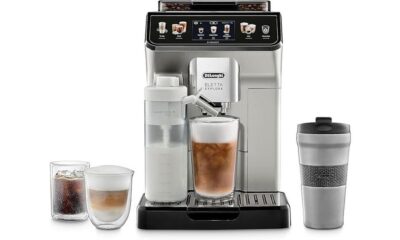
 Espresso Machines Reviews2 weeks ago
Espresso Machines Reviews2 weeks agoDeLonghi Eletta Explore: A Comprehensive Review [2025]
-

 Espresso Machines Reviews3 weeks ago
Espresso Machines Reviews3 weeks agoILAVIE 20 Bar Espresso Machine Review (2025)
-

 Espresso Machines Reviews3 weeks ago
Espresso Machines Reviews3 weeks agoSUMSATY Espresso Machine Review (2025)
-
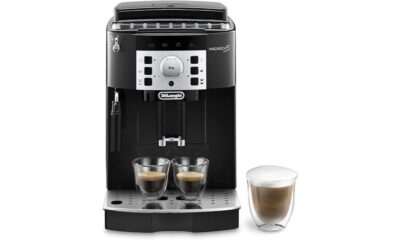
 Espresso Machines Reviews2 weeks ago
Espresso Machines Reviews2 weeks agoDeLonghi Magnifica S ECAM22.110.B Review: A Coffee Lover's Dream [2025]
-
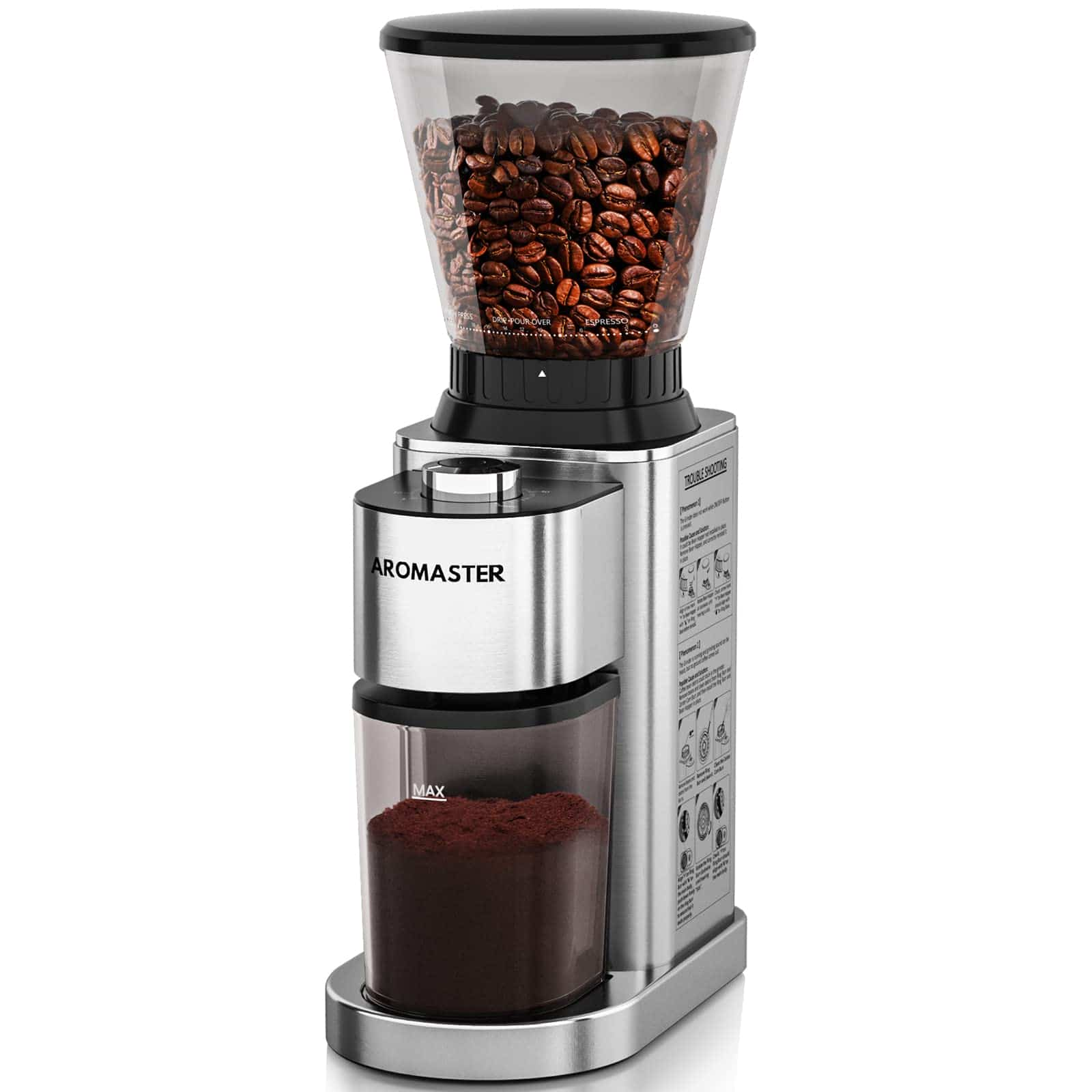
 Coffee Grinders Reviews3 weeks ago
Coffee Grinders Reviews3 weeks agoAromaster Burr Coffee Grinder Review (2025)
-

 Espresso Machines Reviews3 weeks ago
Espresso Machines Reviews3 weeks agoMAttinata Espresso Machine Review (2025)
-
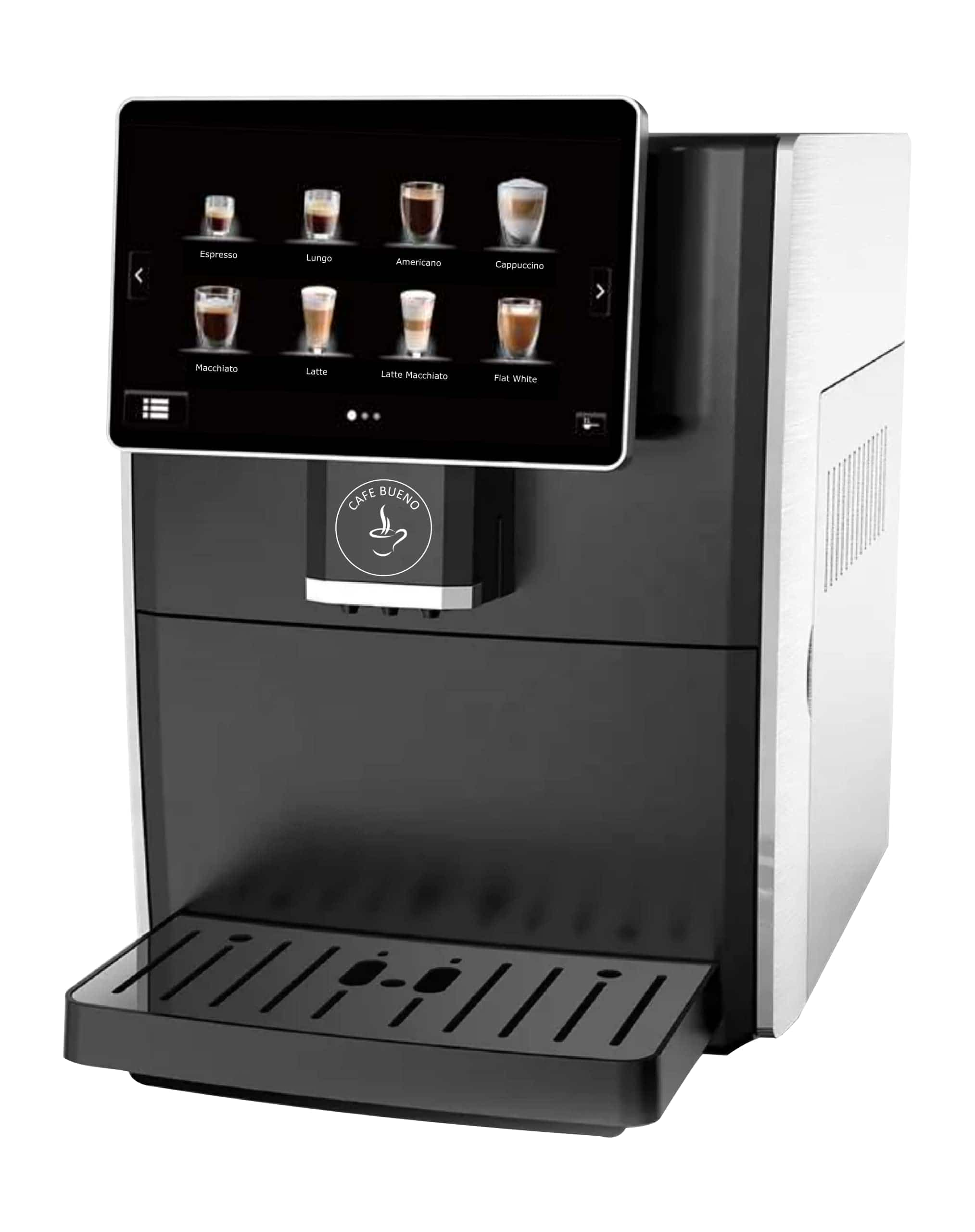
 Espresso Machines Reviews3 weeks ago
Espresso Machines Reviews3 weeks agoCafe Bueno Super Automatic Espresso Machine Review (2025)
-
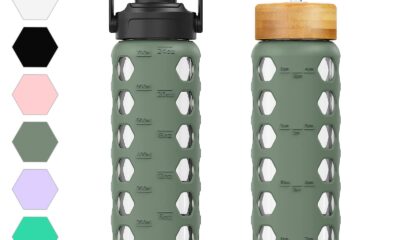
 Cappuccino Oracle Selected Reviews3 weeks ago
Cappuccino Oracle Selected Reviews3 weeks agoBest Glass Water Bottles for Eco-Friendly Hydration [2025]







